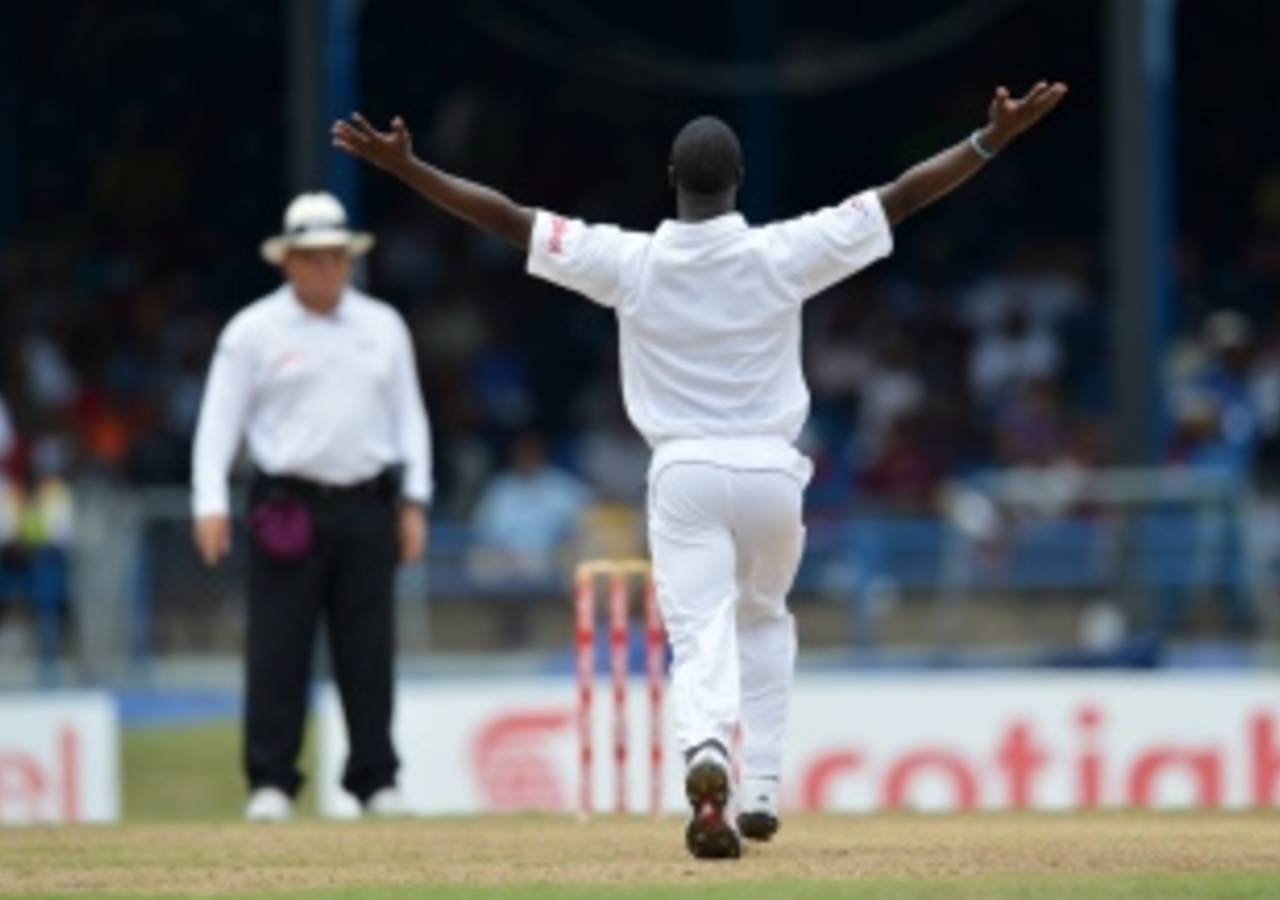West Indies have found it hard enough playing against Australia without the added obstacle of an inconsistently applied and supported Decision Review System, the coach
Ottis Gibson has said. Adding his voice to the growing number of international cricket figures calling for consistent use of technology or none at all, Gibson said the hosts were finding it hard to understand a system that has given them more hindrance than help.
Expecting to be censured by the ICC for his comments, Gibson said his team had wanted to provide a sterner fight for Australia than had so far been the case, but had their task made more difficult by the DRS. Its use in the series has been affected by WICB budgets precluding the host broadcaster from using Hot-Spot or Snicko technology, leaving many replays ambiguous and decisions based on the interpretations of the umpires Ian Gould, Marais Erasmus and Tony Hill.
"I can't say what I really want to say about the DRS because the ICC will sack me or ban me or whatever," Gibson said. "If the ICC is going to use DRS I think they should use all the technology and I think if we haven't got all the technology we shouldn't use it at all.
"Over the course of the two Test matches, the way that it's panned out, the decisions that have gone against us. In Barbados we had a man out [Michael Clarke] and then he was given not out with the use of the cameras and so on. To us sitting watching it, we didn't see anything conclusive to say that he had hit it or not hit it so therefore we thought that the decision the umpire made in the first instance should have stood instead of being overruled.
"There's been a lot of little things that have gone against us in Barbados and here as well and it's tough. We know the Aussies are better than us and we know we have to give them a challenge but then all these little things go against you. You can't cry over spilt milk, you've got to keep getting yourself up and keep going. It's tough but the guys, credit to them they've kept coming back and they've been very competitive."
Gibson said the system was one of the problems he was trying to negotiate with his young team, which fought well to tie the ODI and Twenty20 series against Australia. They are now staring squarely at a 2-0 deficit in as many Tests after Nathan Lyon's spin tore through the Caribbean side in the final session of day three in Trinidad.
"Everything in coaching, especially when we're trying to build a side is hard," he said. "It's hard sometimes to keep the guys motivated as well when they come off the field after a long hard day and feel like all the little 50/50s are going against them in the middle as well. You have to talk them through those situations as well. I think to be fair to the guys they have managed to stay tough.
"The guys have hung in. They played some pretty good cricket for the most part but, like was mentioned before, it was just those little parts - one bad hour - and we have to try and overcome that hurdle. We've got over a lot of hurdles to get to where we are that moment to play some pretty competitive cricket but we just need to overcome those little situations where one bad hour is killing us."
As for the 20-minute delay at the start of the day's play, caused by a power outage that robbed the ground and the world of television pictures, Gibson said it had been another sign of the fact that television was such a major player in the conduct of professional sport.
"I suppose most things in cricket, and sport in general, are controlled by TV and there was no TV feed for the umpires and the officials to deal with DRS and all that sort of stuff," Gibson said. "The umpires brought us back off the field then we had a little discussion that we're here to play cricket and cricket used to be played without TV so let's get on with it, so we came back on - it wasn't much of a distraction for us.
"There was no TV feed in the whole ground at the time so the officials would not have had DRS for instance, so they came off the field and together they had an opinion, with the match referee and the two captains and the management from the two teams, and we decided let's go play cricket."
Daniel Brettig is an assistant editor at ESPNcricinfo. He tweets here
